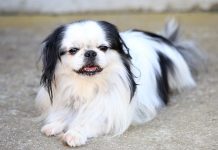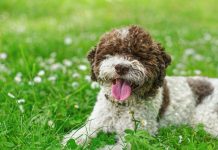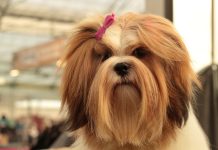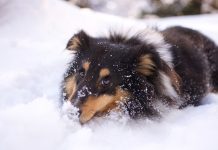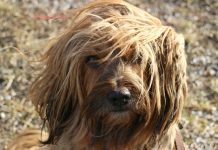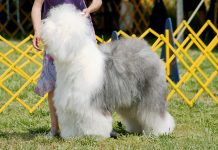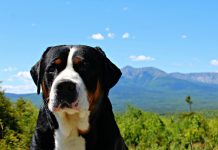History and Origins of the Collie Breed

The Collie breed, known for its intelligence, loyalty, and striking appearance, has a rich history and distinctive physical characteristics. Here’s an overview of the history, origins, and physical attributes of Collies:
History and Origins:
- Origins: The Collie is believed to have originated in Scotland and Northern England, where it was used primarily as a herding dog for sheep and cattle. The breed’s name “Collie” may have come from the Scottish dialect word “colley,” which means black.
- Development: Collies were developed over centuries through selective breeding to excel in herding tasks, exhibiting keen intelligence, agility, and a strong work ethic. They were highly valued by shepherds for their ability to manage livestock and protect the herd.
- Fame: The breed gained widespread fame in the 19th century due to the popularity of Queen Victoria’s favorite Collie, which sparked interest in the breed and led to its prominence in the show ring.
Physical Characteristics and Appearance:
- Size: Collies are medium to large-sized dogs. The breed standard specifies two main varieties based on size:
- Rough Collie: The rough-coated variety is more commonly seen and is larger, standing 22 to 26 inches (56 to 66 cm) tall at the shoulder and weighing 50 to 75 pounds (23 to 34 kg).
- Smooth Collie: The smooth-coated variety is slightly smaller, standing 20 to 24 inches (51 to 61 cm) tall at the shoulder and weighing 40 to 60 pounds (18 to 27 kg).
- Coat: Collies have a luxurious double coat that provides protection against the elements. The outer coat is dense, long, and either rough or smooth depending on the variety. The undercoat is soft and insulating.
- Color: Collies come in various coat colors, including sable and white, tricolor (black, white, and tan), blue merle (marbled gray with black patches), and white. Sable is the most common color seen in Collies.
- Head and Expression: Collies have a refined head with a flat skull and a distinct stop. Their almond-shaped eyes are expressive and usually dark brown in color. The ears are small and carried erect when the dog is alert.
- Body: Collies have a well-balanced body with a level back and a deep chest. The tail is long and carried low, with a slight upward curve at the end.
- Gait: Collies are known for their smooth, efficient movement. They have a ground-covering stride and appear agile and graceful when in motion.
Collies are renowned for their beauty, intelligence, and versatility. While they excel in the show ring and as family companions today, they retain their herding instincts and make excellent working dogs when given the opportunity. Their distinctive appearance, including their luxurious coat and expressive eyes, contributes to their enduring popularity as both working and companion animals.
Collie Temperament and Personality Traits
Collies are known for their intelligent, loyal, and gentle temperament. They make wonderful family pets due to their versatility, adaptability, and affectionate nature. Here are the key temperament and personality traits of Collies, along with their training and socialization needs:
Temperament and Personality Traits:
- Intelligence: Collies are highly intelligent dogs, ranking among the smartest breeds. They are quick learners and excel in obedience training and various canine sports.
- Loyalty: Collies are devoted and loyal to their families. They form strong bonds with their owners and are known for their protective instincts, especially towards children.
- Gentleness: Collies have a gentle and kind nature. They are patient and tolerant, making them great companions for families with children and other pets.
- Alertness: Collies are alert and watchful, which makes them excellent watchdogs. They are quick to alert their owners to anything unusual or suspicious.
- Playfulness: Despite their calm demeanor, Collies are playful and enjoy interactive games and activities. They thrive on mental stimulation and physical exercise.
- Adaptability: Collies are adaptable dogs that can live in various environments, including apartments (with regular exercise) or larger homes with yards. They are versatile and can adjust to different lifestyles.
- Herding Instincts: Collies have strong herding instincts, which may manifest as nipping or circling behaviors, especially towards children or other pets. Early training and socialization can help manage these tendencies.
Training and Socialization Needs:
- Early Training: Start training Collies from a young age to establish good behavior and manners. Positive reinforcement methods, such as praise and treats, work well with Collies due to their eagerness to please.
- Socialization: Socialize Collies with various people, animals, and environments to prevent shyness or timidity. Expose them to different situations gradually and positively to build confidence.
- Exercise Requirements: Collies are active dogs that require regular exercise to stay healthy and happy. Daily walks, interactive play sessions, and mental stimulation through training or puzzle toys are essential.
- Herding Activities: Engage Collies in herding or agility activities to fulfill their natural instincts and provide mental stimulation. These activities also strengthen the bond between owner and dog.
- Consistent Leadership: Collies respond well to confident and consistent leadership. Establish yourself as the pack leader through fair and firm training methods.
- Positive Reinforcement: Use positive reinforcement techniques such as treats, praise, and play to motivate and reward desired behaviors. Avoid harsh training methods as Collies are sensitive dogs.
By meeting their training and socialization needs, Collies can thrive as well-rounded and well-behaved companions. Their intelligence, loyalty, and gentle nature make them excellent family dogs and working partners for those who appreciate their unique qualities.
Health Considerations and Common Issues in Collies
Collies are generally healthy dogs with a long lifespan, but like all breeds, they are prone to certain health conditions. Understanding these health considerations and providing appropriate care can help ensure a happy and healthy life for your Collie. Here are some common health issues in Collies and considerations for living with this breed:
Health Considerations:
- Collie Eye Anomaly (CEA):
- CEA is a genetic condition that affects the development of the eye. It can range from mild to severe and may cause vision impairment.
- Responsible breeders perform eye examinations to detect CEA and avoid breeding affected dogs.
- Progressive Retinal Atrophy (PRA):
- PRA is a degenerative eye disease that leads to blindness over time. It is also a hereditary condition in Collies.
- Regular veterinary check-ups and eye screenings can help monitor vision health.
- Hip Dysplasia:
- Hip dysplasia is a common orthopedic condition in many large breeds, including Collies.
- Maintaining a healthy weight and providing appropriate exercise can help reduce the risk of hip problems.
- Dermatomyositis:
- Dermatomyositis is an inherited skin disease that causes inflammation of the skin and muscles.
- Collies with this condition may develop skin lesions, hair loss, and muscle atrophy.
- Drug Sensitivity:
- Collies are sensitive to certain drugs, particularly ivermectin and related medications used to treat parasites.
- Inform your veterinarian about your Collie’s breed and potential drug sensitivities.
- Bloat (Gastric Dilatation-Volvulus):
- Bloat is a serious and potentially life-threatening condition where the stomach fills with gas and twists.
- Feeding multiple small meals, avoiding strenuous exercise after meals, and monitoring for signs of bloat are essential.
Living with a Collie: Suitable Environments and Lifestyle Considerations:
- Exercise Needs:
- Collies are active dogs that require regular exercise to stay healthy and prevent boredom.
- Daily walks, playtime, and mental stimulation through training or interactive toys are important.
- Grooming:
- Collies have a double coat that requires regular grooming to prevent mats and tangles.
- Brush their coat weekly and pay extra attention during shedding seasons to minimize loose hair.
- Training and Socialization:
- Collies thrive on mental stimulation and benefit from obedience training and socialization.
- Start training early and expose your Collie to different people, animals, and environments to promote good behavior.
- Family Interaction:
- Collies are loyal and affectionate dogs that thrive in a loving family environment.
- They enjoy spending time with their human companions and may bond closely with specific family members.
- Safe Environment:
- Provide a safe and secure environment for your Collie, especially if they have herding instincts.
- Supervise interactions with children and other pets to prevent nipping or herding behaviors.
By understanding the health considerations and lifestyle needs of Collies, you can create a supportive and enriching environment for your beloved companion. Regular veterinary care, proper nutrition, exercise, and attention to grooming will contribute to a long and happy life for your Collie.
Collie Variations and Breeding Practices

Collies are a breed with distinct variations based on coat type and size. The main variations within the Collie breed are the Rough Collie and the Smooth Collie, both of which share the same breed standard but differ in coat texture and grooming needs. Here’s more detail about these variations and common breeding practices associated with Collies:
Variations:
- Rough Collie (Long-Haired Collie):
- The Rough Collie is the more common variety of Collie seen in shows and as family pets.
- Characteristics:
- Long, flowing double coat with a dense, harsh outer coat and a soft undercoat.
- Feathering on the legs, chest, and mane.
- Grooming Requirements:
- Regular brushing to prevent mats and tangles, especially during shedding seasons.
- Moderate shedding, requiring attention to coat maintenance.
- Smooth Collie (Short-Haired Collie):
- The Smooth Collie has a shorter and denser coat that is easier to maintain.
- Characteristics:
- Short, flat outer coat with a dense undercoat.
- Minimal feathering on the legs and tail.
- Grooming Requirements:
- Weekly brushing to remove loose hair and dirt.
- Less frequent grooming compared to the Rough Collie.
Breeding Practices:
- Health Screening:
- Responsible breeders prioritize the health and well-being of Collies by conducting health screenings for genetic conditions such as Collie Eye Anomaly (CEA), Progressive Retinal Atrophy (PRA), and hip dysplasia.
- Screening helps to identify potential health issues and reduce the risk of passing on genetic diseases to future generations.
- Conformation and Temperament:
- Breeders focus on maintaining the breed standard for Collies, which includes specific criteria for physical appearance, temperament, and behavior.
- Collies should exhibit intelligence, loyalty, and a gentle disposition suitable for companionship and working roles.
- Herding Ability:
- Some breeders emphasize the Collie’s herding instincts and working ability by selecting for traits that enhance their natural herding skills.
- Working lines of Collies may be bred specifically for herding tasks, while show lines prioritize conformation and appearance.
- Color and Coat Type:
- Breeders may specialize in specific coat colors (e.g., sable and white, tricolor, blue merle) or coat types (rough or smooth).
- Different coat colors and patterns are valued in the show ring and among enthusiasts, leading to breeding practices that produce desired aesthetics.
- Ethical Practices:
- Ethical Collie breeders prioritize the health, temperament, and welfare of their dogs over cosmetic traits.
- They provide proper care, socialization, and early training for puppies to ensure they develop into well-adjusted adults.
Collies are a versatile breed with distinct variations in coat type (Rough vs. Smooth) and size. Responsible breeding practices prioritize health, temperament, and adherence to breed standards. Whether as show dogs, working companions, or family pets, Collies are valued for their intelligence, loyalty, and gentle nature, making them beloved companions in many households. Working with reputable breeders who prioritize the health and well-being of Collies is essential for ensuring the continuation of this wonderful breed’s legacy.
50 Best Names with Meanings for Collies
Naming your Collie is a fun and important decision that reflects their personality and characteristics. Here are 50 best names with meanings for Collies:
- Rex – Latin for “king”
- Luna – Latin for “moon”
- Charlie – Free man
- Willow – Slender and graceful
- Finn – Fair or white
- Sadie – Princess
- Max – Greatest
- Ruby – Red gemstone
- Oscar – Divine spear
- Rosie – Rose
- Buddy – Friend
- Molly – Star of the sea
- Bailey – Bailiff or steward
- Zoe – Life
- Cooper – Barrel maker
- Lucy – Light
- Sam – God has heard
- Stella – Star
- Tucker – Fabric pleater
- Lily – Flower
- Duke – Leader
- Penny – Weaver
- Riley – Courageous
- Scout – To listen
- Ginger – Pep
- Jack – God is gracious
- Sophie – Wisdom
- Winston – Joy stone
- Maggie – Pearl
- Teddy – Wealthy guardian
- Bella – Beautiful
- Jake – Supplanter
- Daisy – Day’s eye (flower)
- Cody – Helpful
- Chloe – Blooming
- Zeus – King of the gods
- Mia – Mine
- Rocky – Rest
- Annie – Grace
- Oliver – Olive tree
- Millie – Gentle strength
- Bentley – Meadow with coarse grass
- Ellie – Light
- Harley – From the hare’s meadow
- Sasha – Defender of mankind
- Coco – Chocolate bean
- Rusty – Red-haired
- Milo – Soldier or merciful
- Piper – Flute player
- Willow – Slender and graceful
Choose a name that resonates with your Collie’s personality, appearance, or the special bond you share. Whether you prefer classic names or unique ones, these options offer a variety of meanings and styles to inspire the perfect name for your beloved Collie.

In conclusion, this comprehensive guide has provided an in-depth overview of Collie dogs, highlighting their breed characteristics and essential care considerations. Throughout our exploration, we’ve delved into the history, distinctive traits, and important aspects of owning a Collie.
Collies are known for their intelligence, loyalty, and gentle nature, making them excellent companions for families and individuals alike. They excel in activities such as herding, agility, and obedience, showcasing their versatility and eagerness to please.
As you embark on your journey with a Collie, it’s important to understand and appreciate their unique qualities and needs. Providing them with regular exercise, mental stimulation, and positive training will ensure they thrive and remain happy companions in your life.
By nurturing a strong bond and fostering a loving relationship with your Collie, you’ll create lasting companionship and enjoy the many joys that this wonderful breed has to offer. Remember to consult with veterinarians and experienced dog trainers for specific guidance tailored to your Collie’s individual needs. With proper care and attention, your Collie will be a cherished member of your family for years to come.







